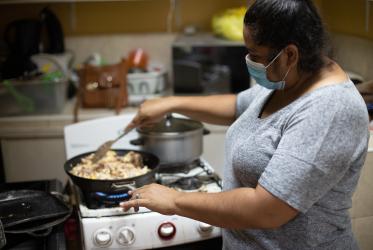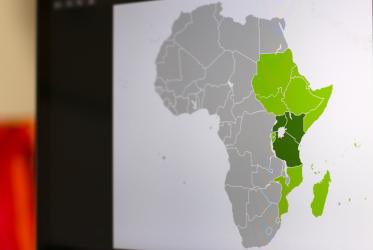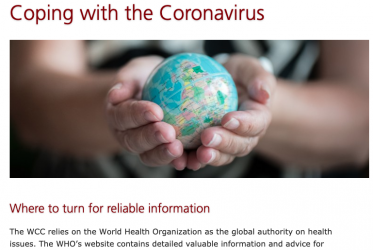Displaying 1 - 20 of 42
Dr Saïd Ailabouni: God is on the side of rejected, oppressed, occupied
12 September 2019
A faith-based, holistic approach to HIV and AIDS-care
13 March 2019
Worrying food shortages compel faith action
19 October 2018
WCC condemns terrorism attacks
02 November 2017










